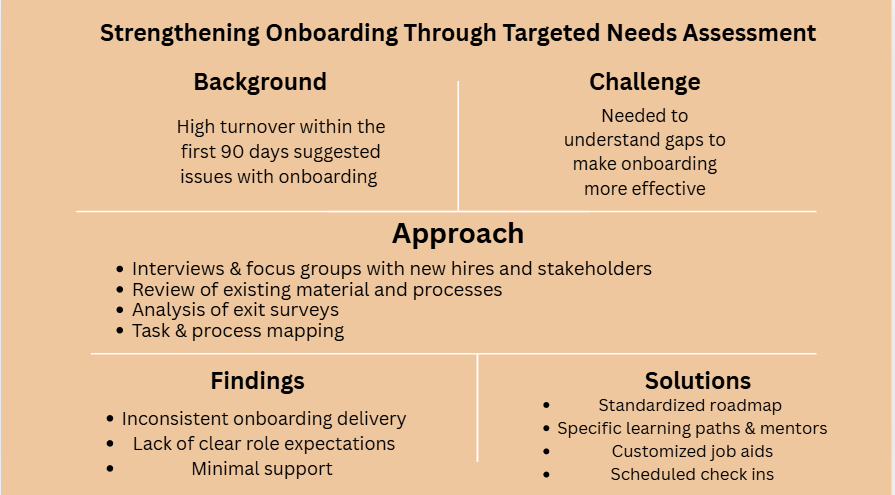Case Study: Strengthening Onboarding Through Targeted Needs Assessment
Background:
A large organization was experiencing high turnover within the first 90 days of employment, particularly in field operations. Feedback suggested that employees felt unprepared and disconnected during the onboarding process, but no formal assessment had been conducted to pinpoint the gaps.
Challenge:
The existing onboarding program was generic, missing information, had outdated information, lacked job-specific training, and relied heavily on outdated handbooks and shadowing. The organization needed to understand where the disconnect was happening and how to make onboarding more engaging, efficient, and role-relevant.
Approach:
I conducted a comprehensive needs assessment that included:
Interviews and focus groups with new hires, supervisors, and HR staff
Review of existing onboarding materials and workflows
Exit survey analysis for reoccuring themes
Benchmarking against similar organizations in the industry
Task and process mapping to identify bottlenecks and duplication
Findings:
The assessment revealed inconsistencies in how onboarding was delivered across departments, a lack of clear role expectations early on, and minimal support during the first two weeks. Many new hires didn’t receive job-specific training until several weeks in, leading to frustration and early disengagement.
Solution:
I recommended a revamped onboarding experience that included:
A standardized onboarding roadmap across roles and departments
Role-specific learning paths in the LMS with microlearning modules
A structured peer mentor system for the first 90 days
Job aids and day-one guides customized to each location
Scheduled weekly check-ins with supervisor and monthly check-ins with leadership
Results:
90-day retention increased by 28% within six months of rollout
New hire satisfaction scores rose from 62% to 89%
Managers reported a 30% reduction in onboarding time
New employees felt more prepared and confident earlier in their roles


